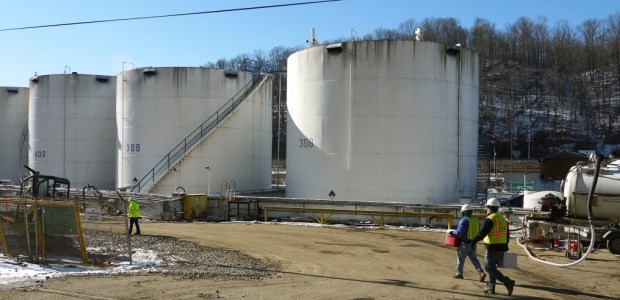
CSB to Release Revised Freedom Industries Report
The board will host a media conference call May 11 to release it, with Chairperson Vanessa Allen Sutherland participating.
Eight months after issuing its final report with findings and recommendations from the Freedom Industries chemical leak in Charleston, W.Va., a leak that contaminated the drinking water supply for about 300,000 residents, the U.S. Chemical Safety and Hazard Investigation Board (CSB) is set to release a revised final report. The board will host a media conference call May 11 to release it, with Chairperson Vanessa Allen Sutherland participating.
The January 2014 leak from one storage tank at the Freedom Industries site spilled an estimated 10,000 gallons of crude methylcyclohexanemethanol (MCHM) mixed with propylene glycol phenyl ethers into the Elk River. The company initially reported 1,000 gallons of crude MCHM had leaked and only gradually increased the reported amount to 10,000 gallons, and it did not reveal the presence of PPH in the released chemical until 13 days after the initial leak was discovered from the 46,000-gallon storage tank.
The board's investigation found that Freedom Industries' inability to immediately provide information about the chemical characteristics and quantity of spilled chemicals resulted in significant delays in the issuance of the orders not to use the water and in informing the public about the contamination. As well, no comprehensive aboveground storage tank law existed in West Virginia at the time of the release, and Freedom Industries had failed to maintain adequate pollution controls and secondary containment as required.
"Future incidents can be prevented with proper communication and coordination. Business owners, state regulators and other government officials and public utilities must work together in order to ensure the safety of their residents," Sutherland said when the initial final report was released. "The CSB's investigation found fundamental flaws in the maintenance of the tanks involved and deficiencies in how the nearby population was told about the risks associated with the chemical release."
The investigators found the MCHM tanks were not internally inspected for at least 10 years before the leak occurred.